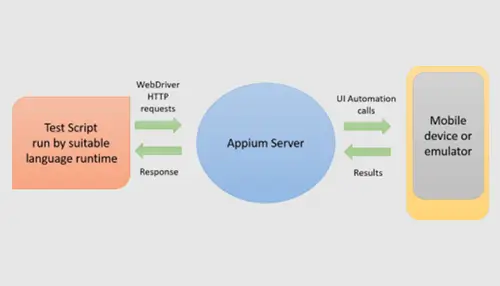As technologies are continuing to evolve at a faster pace, organizations should leverage all the possible ways to increase productivity, enhance efficiency, and reduce costs. Many organizations have started adopting an agile approach to software development, as a result, automating the test cycle has become mandatory for testing teams. And test automation frameworks like Appium and Selenium have become buzzwords in the test community for this very reason.
This post aims to highlight key differences between Appium vs Selenium, So, let’s begin.
Both Appium and Selenium are open-source test automation tools and available for free of cost. Appium simplifies automated testing of mobile web, native, and hybrid apps. Selenium comes with features to simplify automated web application testing by supporting several operating systems, programming languages, and browsers.
The testers can use Appium to test different types of mobile applications running on Android and iOS platforms. They can use Selenium to evaluate various websites and web applications running on desktop browsers. And the important point to note is that Appium drives the Android, Windows, and iOS apps through Selenium WebDriver.
But the two most popularly used test automation frameworks still differ from one other in terms of functionality, usage, and compatibility. You need to understand the major differences between Appium vs Selenium to choose the right test automation framework.
APPIUM vs SELENIUM – Comparing The Two Most Widely Used Test Automation Tools
1. Platform Support: Both Appium Selenium are cross-platform test automation frameworks. Appium supports Windows along with other major mobile platforms like Android and iOS. Whereas, Selenium accelerates web application testing by supporting major desktop browsers and operating systems.
2. WebDriver: The testers have options to choose from two different parts of Selenium – Selenium IDE and Selenium WebDriver. With Selenium WebDriver it gets easier to create browser-based regression automation tests and suites. It even allows testers to distribute the test cases smoothly across varied test environments.
Appium automated mobile app testing by leveraging WebDriver. It drives both Android and iOS sessions through WebDriver JSON wire protocol.
3. Programming Language: Appium supports all programming languages with the Selenium client library. And unlike Selenium, it has features to create test scripts automatically.
Selenium supports a wide range of programming languages – Ruby, Python, JavaScript, PHP, Java, and C#. Hence, the testers have the option to write test scripts in several programming languages.
4. Design Concept: Appium was developed as an HTTP server using NodeJS. To initialize and use the Appium server, a tester needs to install NodeJS on the system as a prerequisite. On the other hand, Selenium is designed as a test automation suite for web apps and websites. It is designed to accelerate web application testing by controlling browser actions automatically.
5. Use Cases: Appium features automated mobile application testing. The testers use Appium to evaluate mobile web, hybrid, and native applications. Appium can also be used to test applications running on Android and iOS devices and platforms.
Selenium is the most preferred test automation framework for web app testing. However, QA testers can also use Selenium to automate API tests and web services. They can also use Selenium to automate mobile application testing.
CONCLUSION
On the whole, both Appium and Selenium are cross-platform and open source automation testing tools. Appium accelerates the testing of hybrid, native, and mobile web applications. Whereas, Selenium comes with features to simplify the development of various web applications. Hence, it is always essential for testers to keep in mind the requisite project needs when comparing both.







